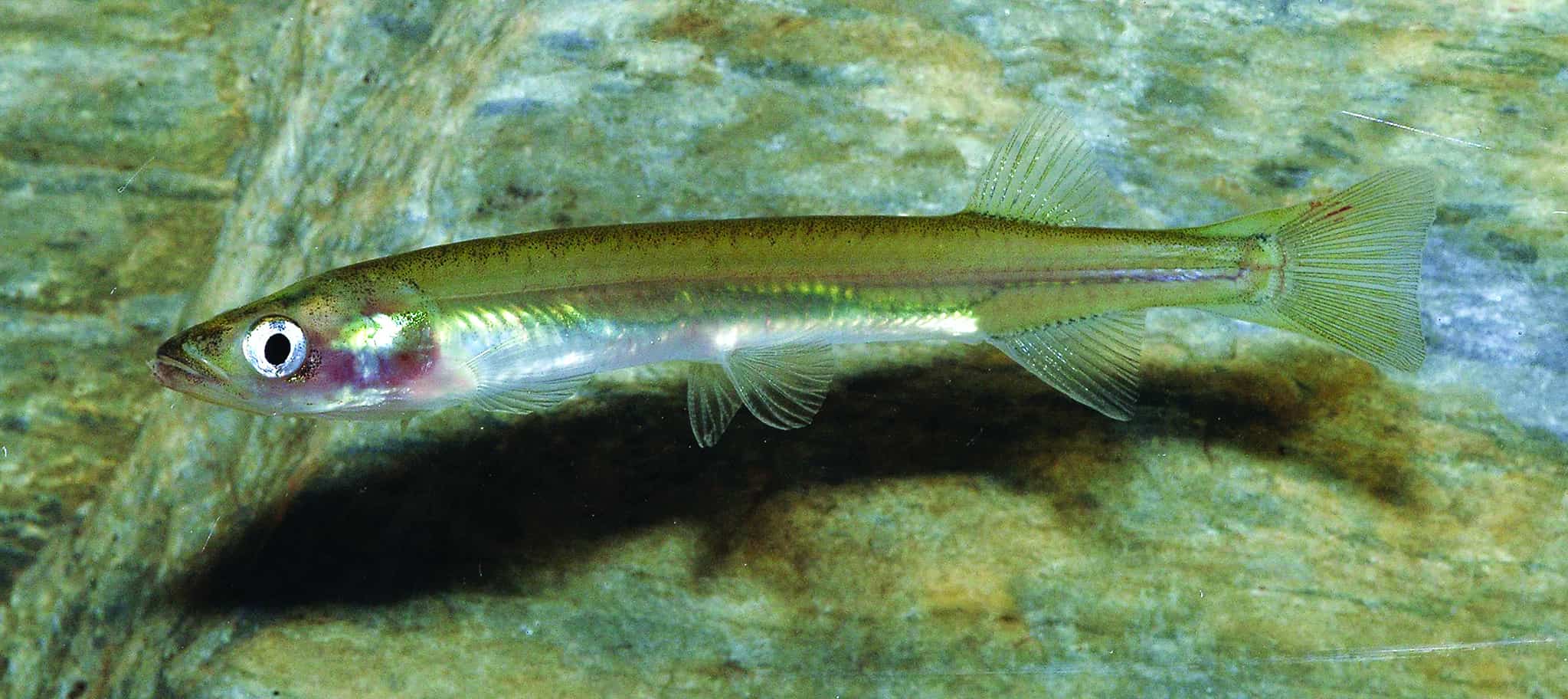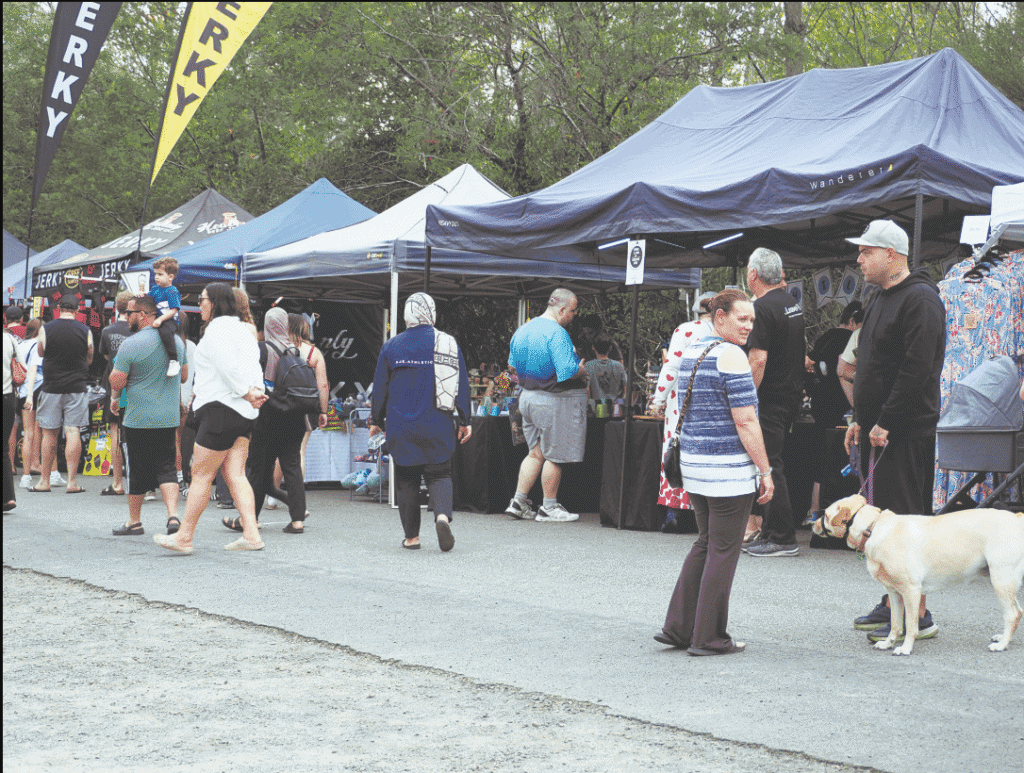News Article
Ghost Fish apparition in shire

Want to read more articles like these?
FLAT-headed galaxias, a critically endangered fish, have been found in a billabong next to the Goulburn River near Alexandra. Alexandra is proving to be a stronghold for the species with records showing the fish also found there in 2002.
Flat-headed galaxias are highly mobile fish that swim just below the surface of the water. They are known as ‘ghost fish’ as after sightings, they often disappear before researchers can get there.
“Someone will show us a photo of it and say they caught this in this system or lake and by the time we get there it’s gone,” Dr Tarmo Raadik, Senior Research Scientist, Applied Aquatic Ecology, at the Arthur Rylah Institute for Environmental Research said.
“Even some of the ones that we’ve found, the odd individual here and there, we’ve found doing other work so we weren’t really targeting it but, by the time we get back to do some work on it, it’s gone.
“If you are expecting to see it you won’t, but you will see it when you don’t.”
Dr Raadik said since its discovery the number of flat-headed galaxias has “massively declined” following European settlement.
“They’re presumed to be extinct in South Australia and New South Wales,” he said. “So really what we’ve got left in Victoria, even though it’s a small proportion of what it used to be, is at least something we’ve got to work with.
“The galaxiids fishes are important because historically, well before European settlement, they were a group of the widest and most abundant freshwater fish across all the freshwater catchments across the south of all Australia, including Tasmania.
“They’re an old battler and it’s really important to acknowledge them and keep them going.”
Researchers recently found populations of flat-headed galaxias in the wild, with a population near Alexandra being a “stronghold for the species”, according to Dr Raadik who found the fish in that location as well as another in Yea previously in 2002.
“Alexandra is the only location we’ve gone back to and they are still there,” he said.
“What this indicates to us is that there may potentially be more of these valuable locations.”
The next step for the conservation of the species is to do some genetic work to look at population health and potentially look at whether they can be bred to create additional populations. The Alexandra population will be important in this process.
“One step will be questioning whether we need to bring them into captivity to breed them or if we can we rely on natural hatcheries that are already happening in the wild, such as the population near Alexandra,” Dr Raadik said.
“They appear to be breeding there really well and if it is a really large population, we may be able to harvest them each year and take them to other locations to establish additional populations.”
But Dr Raadik said it is hard to manage and undertake conservation recovery with the fish due to the lack of research and data surrounding its populations.
Sampling for their DNA in the water (environmental DNA; eDNA) is being developed to try to improve finding the elusive fish. If successful, this will be the most cost effective and time efficient ways for researchers to locate this fish and their populations by targeting physical sampling to only those areas where DNA is detected
“At the moment, by not using eDNA, we’re really hunting for a needle in a haystack,” Dr Raadik said.
“You go back to the locations where they have been found before but nine out of 10 times you don’t find them.
There are so many potential wetland habitats for flat-headed galaxias which could be physically sampled, but this takes a lot of time, effort and is costly.
The concept of DNA sampling is that every animal constantly sheds their DNA with it lasting in the water for a certain amount of time. By testing a sample of the water using a genetic probe, it will determine if DNA of the target animal is present. If DNA is found, it gives positive support that the animal is somewhere in the stream or wetland, narrowing the search to these locations where more detailed samplings will be conducted.
“With eDNA sampling you can do a screen of a large area, meaning you can quickly take water samples across the range,” Dr Raadik said.
“All you need is one positive speck of gold to start with.”
The process however is still undergoing testing to ensure the efficiency of results.
“We need to be able to test the method in the field because we need to be confident that a positive detection is a real detection, or worse, if we get a negative detection that it hasn’t just missed the fish species,” Dr Raadik said.
“We’re at that stage now and the way we do that testing is we take the environmental DNA samples at the same time we also sample those locations.
“The people in the lab have no idea whether we caught the species there or not and they do their analysis on the water samples and hopefully we get a match.”
...continue reading the full article by subscribing to our weekly, monthly or annual subscription here.
If you see a photo in the paper of your child, grandchild, partner, or friend we can supply you with a copy to put on your wall as long as Alexandra Newspapers took the photo (we cannot provide a copy of a photo that was taken by a third party).
Alexandra Newspapers is proud to distribute our two primary publications through newsagents, supermarkets, petrol stations and many other outlets across the Murrindindi Shire and beyond.
Alexandra Newspapers offers display and classified advertisements as well the ability to promote your business. Both the Alexandra Standard and the Yea Chronicle offer classified ads for: Births, Deaths, Marriages, Situations Vacant, For Sale, Garage Sale, In Memoriam, Happy Birthday, Anniversary, Public Notice, Meetings, Automotive, Car/Caravan/Motorbikes/Boats. For Rent/Lease, and Wanted.
Alexandra Newspapers can provide commercial printing of plans, posters, business stationery, invoice and receipt books, self-inking stamps and more. Reach out to us for any commercial printing jobs here.
Grab a copy of the weekly newspaper or reach out to us here for subscribing an offline newspaper copy.
Like, comment and share the article on your facebook page.
Want to read more articles like these?

Services
Newspapers
© 2020 - 2025. ALEXANDRA NEWSPAPERS. All rights reserved.
Privacy Policy | Terms of Use | Sitemap
Website built with ❤ by Regional Business Toolkit


